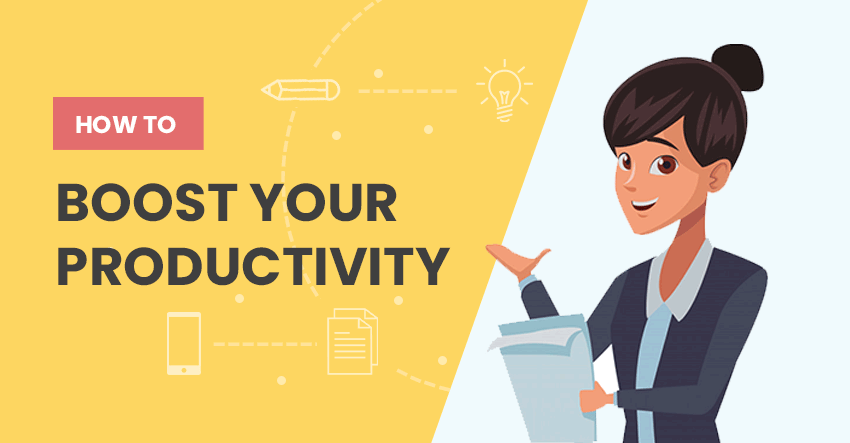How many times do we plan to tackle chores, errands, or tasks during the workweek, only to come home and push our priorities to the side? Sometimes we long to just be horizontal in bed, and other times we end up detailing some inoffensive object like a shoe or pantry.
Whether you seem to be productive or not, you’re still sidelining an important task, for something that might not be. So why are we prone to procrastination? And why do we still succumb to it even when we know it will hurt us in the end?
We’re branching out from our usual tutorials to explore how to end procrastination and start productivity. If you’re also going through a lot at work with a colleague or boss, check out this tutorial on How to Eliminate Frustrations at the Workplace.
Procrastination Isn’t Always About Laziness
It’s not that we aren’t hard workers or enjoy a slothful life. It’s more about not being able to manage the negative feelings that arise with a task. Take, filing taxes for example. If numbers aren’t your thing, filing your own taxes can fill you with daunting and overwhelming feelings. Other negative feelings can include anxiety, insecurity, boredom, frustration, self-doubt, low self-esteem and more.
Our inability to deal with these stressful emotions leads us to procrastinate, as we receive instant mental relief by putting off a task. Avoiding tasks that fill us with dread help us escape the short-term mental stress. But, as you probably have experienced firsthand, this can further elevate levels of stress, anxiety and self-blame, which aren’t great for both your mental and physical health.
End Procrastination, Start Productivity
So how do we actually get over procrastination and start treating it as a serious detriment to our wellbeing? Well if telling yourself you’ll do it later hasn’t worked before, chances are it won't happen anytime soon. For chronic procrastinators, our guilt and self-blame tendencies are so strong that we’ve got to rewire our thinking and learn to manage our negative emotions differently.
After some research, we’ve found that most articles focused on three behavioural changes: self-compassion, routines, and agency.
1. Self-Compassion
We are our own harshest critics. Instead of forgiving and treating ourselves with kindness, we focus on our failures and make it hard to get over our blunders. Self-compassion helps us to moderate our negative reactions, decrease psychological distress, and increase positive feelings like optimism, motivation, and self-worth.
When we forgive ourselves, we can let go of guilt and disappointment for procrastinating and focus on learning from this experience. Examine what triggered you in this instance, and use that to positively face your next challenge.
2. Routines
This may not sound groundbreaking, but routines and rituals help optimize our busy lives and schedules. Setting daily routines can be incredibly beneficial to your physical and mental health, reducing stress and anxiety, as well as the mental effort it takes to make a decision. When we have specific things we do at specific times of the day, this takes away from the cognitive fatigue we face when making decisions that are good for us.
The best thing is, we're happier when sticking to a routine. You can implement healthy habits into your daily routine such as packing salads for lunch, having a coffee as you sit down for work, or waking up at the same time every day by looking forward to your favourite podcast. It’s these little things that add up to bigger and better life decisions.
3. Agency
This behavioural solution encourages one to become an active and aware participant in a difficult situation, instead of adopting the role of a bystander. Instead of avoiding a task, find your agency and break it down in a manageable way.
First of all, believe and know that you can make it through your situation. Second, focus on why this particular task is important and consider the benefits of completing it. Third, create a game plan. Fourth, stick to said game plan. While lists or deadlines work for some, others favour finishing even one small task a day. Whatever you choose, find what works for you, and stay committed to seeing it through.
Conclusion
We hope this article shed a bit of light at the end of your tunnel. We all go through procrastination and the resulting horrible feelings. You’re not beyond help and these are just a few of the ways you can start working through your own situation.
If you feel like your emotions are too overwhelming, we encourage you to be brave and reach out to your doctor with your concerns. Even letting a friend or family member we trust, know how we’re doing can do wonders for our own mental health.
We hope you’ve enjoyed this motivational tutorial. Stay tuned for more!
